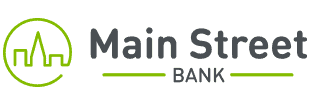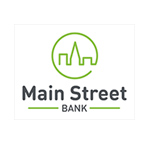Debit cards are a convenient way to access money in your bank account to pay for goods and services. Learn how to keep your debit card safe by following these 8 best practices and avoid losing money due to fraud.
Review your bank statements often and sign up for debit card alerts.
Identifying fraud as soon as possible is critical to retrieving any lost funds and preventing future fraudulent transactions. Check your bank account online at least once a week or even daily. Online and mobile banking are effective tools to check your account transaction history wherever you are. Additionally, you can set up automatic alerts through text or email anytime your debit card is used. This allows you to catch potential false purchases in near real time.
Protect your PIN number.
Don’t share your personal identification number (PIN) with anyone. You should not keep it written down anywhere in your purse, wallet, or in the same place as your debit card. Avoid using your PIN at the gas pump. Instead, use your card as a “credit” purchase to prevent someone from seeing your PIN.
Try to avoid using debit cards online.
Some consumers choose to use credit cards online because a fraudulent transaction on a credit card does not lead to funds being taken from your bank account. When shopping online, check for a security symbol, such as an unbroken key or a padlock, on each website before you order anything. These symbols mean your information will be encrypted and therefore safer.
Only use ATMs at a bank or official financial institution.
Automated teller machines (ATMs) located in convenience stores, subway stations, and airports have a greater risk of having a “skimming” device attached by a thief, which could intercept and store your debit card data. It is easier for criminals to set up these skimming devices in places without surveillance cameras or employees who are trained to look for them. When it comes to financial institutions, bank employees are trained to check the ATMs on site to ensure they have not been tampered with.
Avoid using public Wi-Fi access to conduct any financial transactions, including debit card purchases online.
Use a password-protected wireless signal when doing any bank-related activity from your phone or computer, such as checking your balance, paying bills, or shopping. Hackers will be less likely to capture your password and account information when transactions are conducted within a secure network.
Report suspicious activity immediately.
You should also report any unauthorized transactions immediately to your financial institution, the same way you would report if your wallet were stolen and your credit and debit cards were missing. Many banks have a 24-hour phone number to report lost or stolen debit cards and unauthorized activity.
Consider filing a police report when warranted.
If your debit card is stolen, you may want to contact the police and keep a copy of the police report. This will give you extra support when you want your financial institution to reimburse any fraudulent charges.
Use fake answers when setting up security questions.
You can make up any information you want for your security questions. Just be sure you can remember the answers that you choose. The answers need to be consistent, but they don’t have to be true. In fact, using fake responses to security questions makes it even more challenging for hackers to guess or find them. This is a better strategy than using a pet’s name or your mother’s maiden name for security. Hackers can usually crack common answers like these very easily.
The Takeaway
A little extra vigilance and some new habits can go a long way towards preventing a financial loss and keeping your debit card safe. Moreover, when you apply these practices into all areas of your finances and personal information, you will help keep your information more secure in the long-run.
Would you like to receive more information from us? Sign up for our email newsletter to get the latest news, announcements, and information from Main Street Bank.
Please enable javascript to register.



